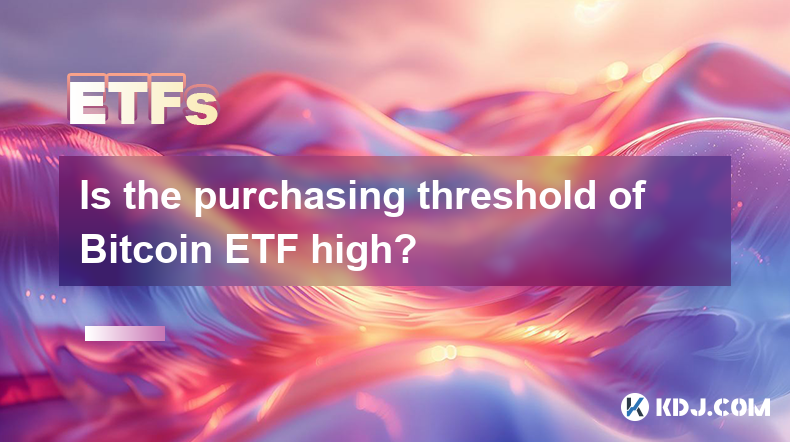-
 Bitcoin
Bitcoin $84,603.0303
1.65% -
 Ethereum
Ethereum $1,628.2638
2.58% -
 Tether USDt
Tether USDt $0.9997
0.00% -
 XRP
XRP $2.1442
1.55% -
 BNB
BNB $586.1953
0.71% -
 Solana
Solana $129.6970
2.29% -
 USDC
USDC $0.9998
-0.02% -
 TRON
TRON $0.2518
-0.50% -
 Dogecoin
Dogecoin $0.1586
-2.40% -
 Cardano
Cardano $0.6343
-0.80% -
 UNUS SED LEO
UNUS SED LEO $9.3746
-0.17% -
 Avalanche
Avalanche $20.1994
3.26% -
 Chainlink
Chainlink $12.7466
0.99% -
 Stellar
Stellar $0.2381
-0.55% -
 Sui
Sui $2.1883
-1.27% -
 Shiba Inu
Shiba Inu $0.0...01199
-0.40% -
 Toncoin
Toncoin $2.8442
-1.19% -
 Hedera
Hedera $0.1656
0.38% -
 Bitcoin Cash
Bitcoin Cash $324.3031
-5.45% -
 Polkadot
Polkadot $3.7104
0.32% -
 Litecoin
Litecoin $76.9539
-0.90% -
 Dai
Dai $0.9999
-0.01% -
 Hyperliquid
Hyperliquid $15.5187
1.91% -
 Bitget Token
Bitget Token $4.2785
-0.04% -
 Pi
Pi $0.7383
-0.07% -
 Ethena USDe
Ethena USDe $0.9989
0.00% -
 Monero
Monero $215.8052
6.03% -
 Uniswap
Uniswap $5.3859
0.83% -
 OKB
OKB $52.8701
-0.49% -
 Pepe
Pepe $0.0...07327
0.90%
Is the purchasing threshold of Bitcoin ETF high?
The purchasing threshold for Bitcoin ETFs varies by ETF and brokerage; some offer fractional shares, lowering entry barriers, but always consider fees and risks.
Apr 01, 2025 at 09:56 pm

Understanding Bitcoin ETFs and Investment Thresholds
The question of whether the purchasing threshold of a Bitcoin ETF is high depends on several factors, primarily the specific ETF in question and the brokerage or platform you use to purchase it. There isn't a universally high or low threshold; it varies considerably. Many ETFs are designed for broad accessibility, aiming to attract a wide range of investors. However, some may have higher minimum investment requirements.
Brokerage Account Minimums
The most significant factor influencing your ability to purchase a Bitcoin ETF is the minimum investment requirement set by your chosen brokerage. Many brokerage accounts have minimum deposit requirements, ranging from zero to several thousand dollars. Even if the ETF itself has no minimum purchase size, your brokerage might impose a limit. Always check your brokerage's terms and conditions before investing.
ETF-Specific Minimums
While less common, some ETFs might have their own minimum purchase requirements. This is usually expressed in the number of shares you need to buy. This minimum is typically low, often just one share, making it accessible to most investors. However, the cost of a single share will vary depending on the ETF's price per share. It is crucial to review the ETF's prospectus to confirm any minimum purchase restrictions.
Fractional Shares and Accessibility
Many brokerage platforms now offer fractional shares. This allows you to buy a portion of a single share, effectively lowering the barrier to entry. If the price of a Bitcoin ETF share is high, fractional shares enable investors with smaller capital to participate. This significantly reduces the purchasing threshold for many individuals.
The Impact of Fees
Beyond the initial purchase, consider ongoing fees associated with holding a Bitcoin ETF. These include management fees, expense ratios, and potentially brokerage commissions. These fees can eat into your returns, so understanding these costs before investing is vital. Compare fees across different ETFs and brokerages to find the most cost-effective option.
Different Types of Bitcoin ETFs
It's important to note that there are different types of Bitcoin ETFs, and their pricing and accessibility can differ. Some might track the price of Bitcoin directly, while others might invest in companies involved in the Bitcoin ecosystem. The investment strategy of the ETF will influence its share price and therefore the effective purchase threshold for investors. Thorough research into the specific ETF's investment strategy is crucial before making a purchase decision.
Diversification and Portfolio Allocation
While Bitcoin ETFs offer exposure to the cryptocurrency market, remember that diversification is key to a robust investment strategy. Don't put all your eggs in one basket. Consider diversifying your portfolio across various asset classes, including stocks, bonds, and other cryptocurrencies. A well-diversified portfolio can help mitigate risk.
Understanding Risk
Investing in Bitcoin ETFs involves significant risk. The price of Bitcoin is notoriously volatile, and the value of your investment can fluctuate dramatically in short periods. Before investing, ensure you fully understand the risks involved and only invest what you can afford to lose. Never invest more than you are comfortable losing.
Regulatory Landscape
The regulatory landscape surrounding Bitcoin ETFs is constantly evolving. Regulations can impact the availability and accessibility of these investment products. Stay informed about any changes in regulations that might affect your investment. Keep up-to-date with relevant financial news and regulatory announcements.
Accessing Bitcoin ETFs Globally
The availability of Bitcoin ETFs can vary depending on your geographical location. Some countries have stricter regulations than others, impacting the availability of these products. Check the regulatory status of Bitcoin ETFs in your country before investing.
Due Diligence and Research
Before investing in any Bitcoin ETF, conduct thorough due diligence. Research the ETF's underlying assets, fees, management team, and past performance. Compare different ETFs to find the one that best aligns with your investment goals and risk tolerance. Never invest based solely on hype or speculation.
Tax Implications
Remember that investing in Bitcoin ETFs can have tax implications. Understand the tax rules in your jurisdiction regarding capital gains and losses from cryptocurrency investments. Consult with a qualified financial advisor or tax professional for personalized advice.
The Role of a Financial Advisor
Consider consulting with a qualified financial advisor before investing in Bitcoin ETFs. They can provide personalized guidance based on your financial situation, investment goals, and risk tolerance. A financial advisor can help you make informed investment decisions.
Step-by-Step Guide to Purchasing a Bitcoin ETF (General Outline)
- Choose a Brokerage: Select a brokerage that offers access to Bitcoin ETFs and meets your needs.
- Open an Account: Complete the account opening process, providing necessary documentation.
- Fund Your Account: Deposit funds into your brokerage account.
- Search for the ETF: Locate the specific Bitcoin ETF you wish to purchase.
- Place Your Order: Specify the number of shares (or fractional shares) you want to buy.
- Review and Confirm: Double-check your order details before submitting.
Frequently Asked Questions
Q: What is the lowest amount I can invest in a Bitcoin ETF?
A: The minimum investment depends on the specific ETF and your brokerage. Some brokerages allow fractional shares, significantly lowering the minimum investment. Others may have minimum account balances or minimum order sizes.
Q: Are Bitcoin ETFs suitable for all investors?
A: No, Bitcoin ETFs are not suitable for all investors. They involve significant risk due to Bitcoin's volatility. Only invest what you can afford to lose and consider your risk tolerance.
Q: What are the fees associated with Bitcoin ETFs?
A: Fees vary depending on the ETF and brokerage. Expect management fees, expense ratios, and potentially brokerage commissions. Carefully review the fee structure before investing.
Q: How can I find a reputable Bitcoin ETF?
A: Research different ETFs, considering their underlying assets, fees, management team, and past performance. Look for ETFs with a strong track record and transparent fee structures. Consider seeking advice from a financial professional.
Q: Are Bitcoin ETFs regulated?
A: The regulatory landscape for Bitcoin ETFs is evolving. Regulations vary by jurisdiction. Check the regulatory status in your location before investing.
Disclaimer:info@kdj.com
The information provided is not trading advice. kdj.com does not assume any responsibility for any investments made based on the information provided in this article. Cryptocurrencies are highly volatile and it is highly recommended that you invest with caution after thorough research!
If you believe that the content used on this website infringes your copyright, please contact us immediately (info@kdj.com) and we will delete it promptly.
- Vaulta Emerges from Its Past with a Renewed Focus on Practical Finance and Compliance-First Blockchain Infrastructure
- 2025-04-15 04:50:13
- Render Network (RNDR), SEI and Bittensor (TAO) lead crypto AI sector despite 5% daily drop
- 2025-04-15 04:50:13
- HYPE is showing early signs of a bullish reversal, with a potential inverse head and shoulders pattern forming
- 2025-04-15 04:45:13
- BlockDAG (BDAG) Captures Developer Attention with Complete Smart Contract Features and Growing $214M Presale
- 2025-04-15 04:45:13
- title: RWA-Focused Crypto Project MANTRA (OM) Loses $5.431B of Market Cap in Overnight Collapse of Its Native Token
- 2025-04-15 04:40:15
- Trump's Tariffs Just Supercharged Bitcoin – Here's What's Coming
- 2025-04-15 04:40:15
Related knowledge

What is the difference in returns between long-term holding of a Bitcoin ETF and holding Bitcoin directly?
Apr 09,2025 at 04:15am
When considering the difference in returns between long-term holding of a Bitcoin ETF and holding Bitcoin directly, it's essential to understand the nuances and factors that affect each investment option. Both approaches have their unique advantages and potential drawbacks, which can significantly impact the overall returns over time. Understanding Bitc...

How is the "roll cost" of a futures Bitcoin ETF generated?
Apr 08,2025 at 01:22pm
The 'roll cost' of a futures Bitcoin ETF is a critical concept for investors to understand, as it directly impacts the performance of the ETF. In this article, we will delve into the mechanics of how the roll cost is generated, exploring the underlying processes and factors that contribute to this cost. Understanding Futures ContractsFutures contracts a...

How can the premium or discount of a Bitcoin ETF be narrowed through an arbitrage mechanism?
Apr 09,2025 at 12:07am
Arbitrage mechanisms play a crucial role in narrowing the premium or discount of a Bitcoin Exchange Traded Fund (ETF). Understanding how these mechanisms work can provide valuable insights into the dynamics of Bitcoin ETFs and their relationship with the underlying asset. This article will delve into the specifics of how arbitrage can be used to align t...

What factors affect the bid-ask spread of a Bitcoin ETF?
Apr 08,2025 at 08:50pm
The bid-ask spread of a Bitcoin Exchange Traded Fund (ETF) is a critical metric that investors and traders closely monitor. It represents the difference between the highest price a buyer is willing to pay (bid) and the lowest price a seller is willing to accept (ask). Several factors influence this spread, and understanding them can help investors make ...

How is the seed capital of a Bitcoin ETF used?
Apr 10,2025 at 02:15pm
The seed capital of a Bitcoin ETF plays a crucial role in the establishment and operation of the fund. This initial investment is used to create the fund's underlying assets, manage operational costs, and ensure the ETF can start trading on an exchange. Understanding how this seed capital is utilized provides insight into the mechanics of Bitcoin ETFs a...

What is the difference between "physically backed" and "synthetic" Bitcoin ETFs in terms of holding assets?
Apr 10,2025 at 04:56pm
Bitcoin Exchange Traded Funds (ETFs) have become a popular way for investors to gain exposure to the cryptocurrency market without directly owning the underlying asset. There are two primary types of Bitcoin ETFs: physically backed and synthetic. Understanding the differences between these two types, particularly in terms of how they hold assets, is cru...

What is the difference in returns between long-term holding of a Bitcoin ETF and holding Bitcoin directly?
Apr 09,2025 at 04:15am
When considering the difference in returns between long-term holding of a Bitcoin ETF and holding Bitcoin directly, it's essential to understand the nuances and factors that affect each investment option. Both approaches have their unique advantages and potential drawbacks, which can significantly impact the overall returns over time. Understanding Bitc...

How is the "roll cost" of a futures Bitcoin ETF generated?
Apr 08,2025 at 01:22pm
The 'roll cost' of a futures Bitcoin ETF is a critical concept for investors to understand, as it directly impacts the performance of the ETF. In this article, we will delve into the mechanics of how the roll cost is generated, exploring the underlying processes and factors that contribute to this cost. Understanding Futures ContractsFutures contracts a...

How can the premium or discount of a Bitcoin ETF be narrowed through an arbitrage mechanism?
Apr 09,2025 at 12:07am
Arbitrage mechanisms play a crucial role in narrowing the premium or discount of a Bitcoin Exchange Traded Fund (ETF). Understanding how these mechanisms work can provide valuable insights into the dynamics of Bitcoin ETFs and their relationship with the underlying asset. This article will delve into the specifics of how arbitrage can be used to align t...

What factors affect the bid-ask spread of a Bitcoin ETF?
Apr 08,2025 at 08:50pm
The bid-ask spread of a Bitcoin Exchange Traded Fund (ETF) is a critical metric that investors and traders closely monitor. It represents the difference between the highest price a buyer is willing to pay (bid) and the lowest price a seller is willing to accept (ask). Several factors influence this spread, and understanding them can help investors make ...

How is the seed capital of a Bitcoin ETF used?
Apr 10,2025 at 02:15pm
The seed capital of a Bitcoin ETF plays a crucial role in the establishment and operation of the fund. This initial investment is used to create the fund's underlying assets, manage operational costs, and ensure the ETF can start trading on an exchange. Understanding how this seed capital is utilized provides insight into the mechanics of Bitcoin ETFs a...

What is the difference between "physically backed" and "synthetic" Bitcoin ETFs in terms of holding assets?
Apr 10,2025 at 04:56pm
Bitcoin Exchange Traded Funds (ETFs) have become a popular way for investors to gain exposure to the cryptocurrency market without directly owning the underlying asset. There are two primary types of Bitcoin ETFs: physically backed and synthetic. Understanding the differences between these two types, particularly in terms of how they hold assets, is cru...
See all articles























































































